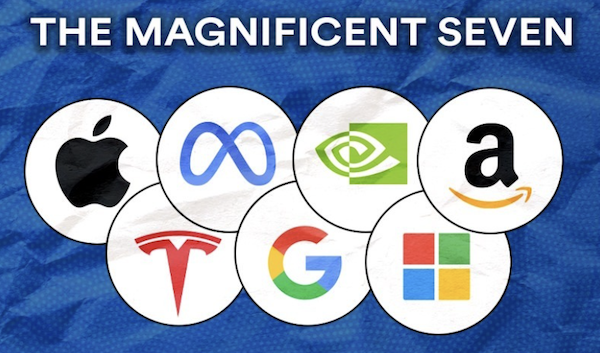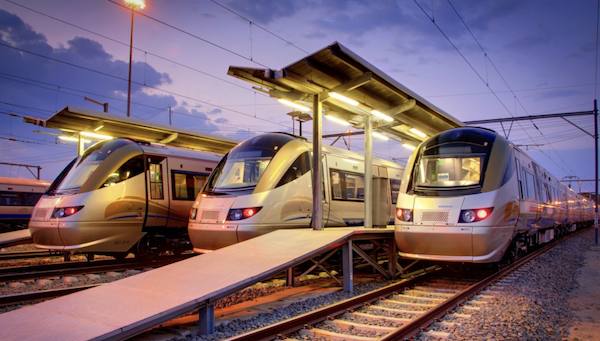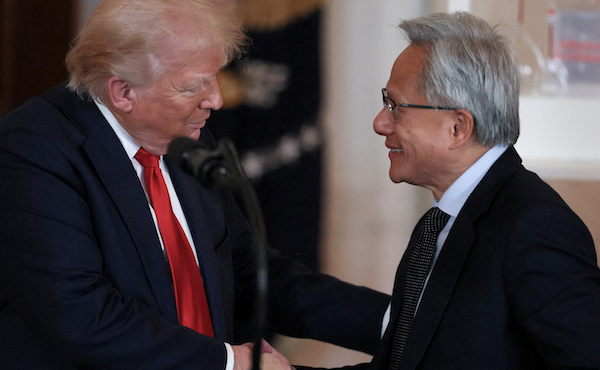Market scorecard
US markets opened stronger yesterday, but lost steam through the session. Mild inflation numbers weren't enough to push Wall Street higher. The Nasdaq hit a new record high thanks to Nvidia (4%) and AMD (6%) rallying on news that they will resume sales of certain chips to China.
In company news, Uber and Baidu are teaming up to roll out robotaxis in markets beyond the US and mainland China, marking a multiyear push into autonomous ride-hailing. Elsewhere, Apple has signed a $500 million deal with MP Materials for rare-earth minerals, a well-timed move, just days after the supplier secured backing from the Pentagon. MP shares jumped 20% on the news.
In summary, the JSE All-share closed up 0.23%, the S&P 500 dropped 0.40%, and the Nasdaq was 0.18% higher.
Our 10c worth
Byron's beats

Some clients only want to talk about the shares that are down in their accounts. The general thinking is that they should be sold because they are in the red, and there must be something wrong with them. This is not the right mindset. Each share represents a small piece of a real business that has numerous moving parts. Naturally, their share prices are going to move higher and lower at different times.
For example, take a look at the magnificent 7 stocks so far this year. Nvidia and Meta are up over 23%, Microsoft is up 20%, Amazon is up 2.6%, Google is down 4.6%, Apple is down 15.5% and Tesla is down 22.4%. Each of these companies has very different stories to tell over the last 7 months. They also have different futures ahead of them.
The same concept applies to our model portfolio. There will be short to medium-term challenges that all the companies will need to face. On rare occasions, these challenges may prompt us to sell and move on, but for the most part, we have faith in the businesses we own to overcome the obstacles and continue growing.
Short-term share price weakness is not an indication that a business is a bad long-term investment.
Michael's musings

I've written a few times about South African Reserve Bank potentially dropping our inflation target to 3%. I noted that the hardest thing about lowering inflation is that we have been so used to prices going up by 5 - 15% a year, we will need a mental reset, particularly when it comes to salary negotiations.
With that in mind, the current wage negotiation between NUMSA and the Gautrain has been interesting to follow. NUMSA is demanding a 7% increase, but the Gautrain is only offering 4.2%, which is still higher than inflation at 2.8%. The union argues that employees need a living wage, and that CPI isn't an accurate reflection of how worker costs have changed. You can read their stance here - CPI increases are not enough.
NUMSA's first objection to using CPI as a negotiating base is that Eskom increased electricity costs by 12.7%, nearly 5 times higher than current inflation levels. I think that is the first place where a mental reset is needed. Government entities need to rebase their price increases to be more in line with inflation, including things like electricity, water and property taxes. It's unlikely though, because these organisations are all cash-strapped and billions behind on maintenance.
Let's see where the two parties finally end up. Given that they are already talking increases in single figures, shows that we are well on our way to a 3% inflation target.
Bright's banter

Nvidia is back on the offensive in China, dusting off its H20 AI chip and preparing to restart sales in a move that could unlock a previously frozen $15 billion revenue opportunity. The H20 was developed specifically for China after the US tightened export restrictions in late 2023, citing national security concerns.
The product got caught in the crossfire again this April during the height of the trade wars, forcing Nvidia to halt shipments, write down $5.5 billion in inventory, and walk away from billions in expected sales. Now, with trade tensions easing slightly, Nvidia says it filed for a fresh license with the US government and expects the green light soon.
To keep regulators happy, Nvidia has also built a new chip, the RTX Pro GPU, which is tailored for US export rules and geared toward AI applications like digital twins for smart factories and logistics. It's based on the company's RTX Pro 6000D design and will come in at a much lower price point than the H20, thanks to lighter specs and simpler manufacturing.
All of this comes as CEO Jensen Huang touches down in Beijing again for a supply chain expo. He's walking a tightrope, maintaining Nvidia's relevance in China while staying clear of US-blacklisted entities.
We remain optimistic holders of Nvidia, opportunities like this feed straight through to the bottom line.
Linkfest, lap it up
On Mexico's Caribbean coast, tourists get fresh lobster. In Puerto Morelos, fishermen face poachers pillaging the reefs out of season, while their own dwindling hauls come laced with plastic - Locals get microplastics.
New drug development is getting harder, slower and more expensive. The hope is that AI can reverse that trend - An AI-driven "factory of drugs".
Signing off
Asian markets kicked off the day with a mixed performance: Australia, Japan, mainland China, and South Korea all gave back early gains and slipped into the red, while Hong Kong, Singapore, and Taiwan held onto positive territory.
In local company news, Ninety One's assets under management climbed to GBP139.7bn by the end of June, up from GBP128.6bn a year earlier. The boost includes GBP1.9bn from Sanlam Investments UK's active asset management business, which was recently transferred to Ninety One UK.
US equity futures are marginally in the green pre-market. Later today, we will see earnings releases from Johnson & Johnson, Bank of America, ASML, Morgan Stanley, and Goldman Sachs. The Rand is steady at around R17.88 to the Buck.
Have a good 'hump day'.